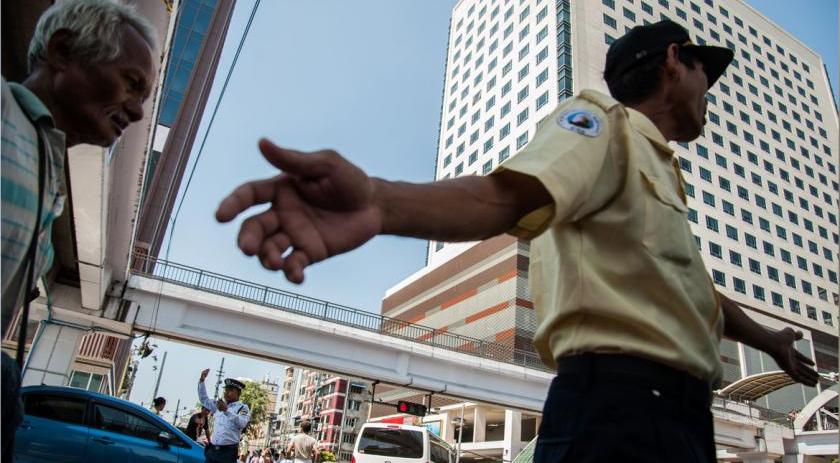
The fifth Pwint Thit Sa (Transparency in Myanmar Enterprises) report has been released by the Myanmar Centre for Responsible Business (MCRB) and Yangon-based consulting firm Yever.
City Mart tops the league table, followed by First Myanmar Investment (FMI), Max Myanmar, Shwe Taung and United Amara Bank (UAB). The report reveals that public companies in Myanmar - whose shares can be bought by the public - lag behind privately-owned businesses in disclosure and corporate governance.
What else do you need to know about this year’s report? Here are our five key takeaways.
1. Information disclosure has improved overall.
Some leading companies are rising to the challenge in disclosing corporate governance information and reporting performance.
City Mart, FMI, Max Myanmar and Shwe Taung have all tried harder to enhance disclosure, particularly in corporate governance and non-financial reporting.
Leading companies are strong in shaping their corporate profile but weaker in corporate governance and reporting.
2. Donations remain a grey area.
Many large companies have established a “foundation” which make donations. However the legal, tax and charitable status of such entities are unclear, as is their governance. Part of the problem is that Myanmar does not have laws regulating political donations.
“Foundations can be used in a way which contravenes good corporate governance, for example through donating to activities connected to Politically Exposed Persons, or to gain favour with the government,” the report said. This was a widespread practice under the old regime, in return for car import permits, construction contract, land deals and other benefits.
The use of donations by tycoons is particularly prominent in Rakhine State. The Union Enterprise for Humanitarian Assistance, Resettlement and Development in Rakhine (UEHRD), established by the civilian government, is tasked with development work with the support of local tycoons. The UEHRD has mobilised donations from well-known company owners, amounting to $13.5 million as of October 2017.
Most donations in Rakhine came from domestic companies, but Japanese brewer Kirin was highlighted by NGO Amnesty International as having donated to military entities through its Myanmar joint venture. Kirin responded by suspending donations and launching a human rights impact assessment of its operations.
3. Corporate governance needs effective media reporting.
Myanmar lacks domestic media coverage of corporate governance.
“Reporting on companies often focuses on reporting on their charitable donations, often a source of corruption in itself,” the report said. The size of the Yangon Stock Exchange and lack of publicly listed companies with a broad base of shareholders also reduce interest.
Limited reporting on corruption and business is also, in part, a consequence of fear of prosecution, particularly under Section 66(d) of the Telecoms Law.
“The two prize-winning Reuters journalists, Wa Lone and Kyaw Soe Oo, detained in December 2017 for their reporting on events in northern Rakhine, are the most well-known, but harassment of journalists is widespread, and is sometimes carried out directly by companies,” said the report.
Freedom of Expression Myanmar monitored the use of 66(d) and found that 10pc of complainants from November 2015 to November 2017 were business-related, and 2pc of defendants were in business.
4. Governance of state-owned economic enterprises is still a mess.
The top two state-run companies (SOEs) for disclosure in the ranking are Construction and Housing Development Bank and Yangon Electricity Supply Corporation.
A number of SOEs languish at the bottom of the ranking, including Myanmar Foreign Trade Bank, No (1) Heavy Industries, No (2) Heavy Industries, No (3) Heavy Industries, and Mandalay Electricity Supply Corporation.
These state enterprises, the report noted, will need to step up corporate governance and disclosure under the reforms envisaged by the Myanmar Sustainable Development action plan, which commits the government to enhance the efficiency and competitiveness of these entities.
Myanmar’s SOEs are generally not independent of government ministries, but are rather firmly entrenched under ministry authority, according to a 2018 report by Natural Resource Governance Institute (NRGI).
“According to the latest count, only four state-owned economic enterprises have quasi-independent boards to monitor SOE activities: Myanmar National Airlines, Myanmar Economic Bank, Myanmar Investment and Commercial Bank, and Myanmar Foreign Trade Bank,” the NRGI said.
In the case of Myanmar National Airlines, the board consists of five retired civil servants, which would not constitute an independent board in most contexts.
While other SOEs have boards, these act as management committees rather than oversight bodies. In nearly every case, SOE management reports to a line ministry, and its capital budget is set by the line ministry.
5. Despite progress, many companies have much more to do in 2019-2020.
Of the 248 companies assessed, 108 still do not have a functioning corporate website. Even where companies do have websites, many of them publish little or no data relating to the criteria covered in this survey. About two-thirds of the firms that disclosed corporation information scored below the overall average. (See graph below.)
Graph: Supplied
Effective capital markets depend on transparency and trust in companies and financial institutions. One way to build trust is through quality media coverage which means companies need to disclose accurate information to enable reporters to do their job.
As the newly-launched MyCo Online Register is set to provide more information about companies registered in the country, journalists will be able to scale up their business reporting. But there remains a need for training, both for journalists and company media relations staff.













